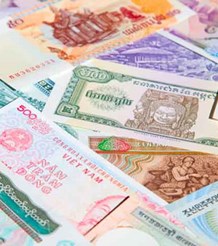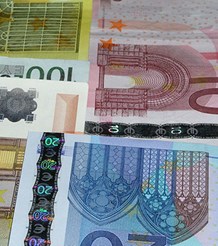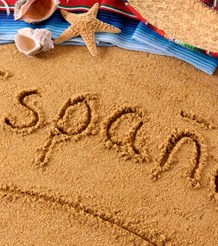
How to obtain a NIE Number in or outside of Spain
Why do you need a Spanish NIE number?
If you're planning to become a permanent resident or want to buy a Spanish property, you will need an NIE number. Unfortunately, the rules as to what exactly you need the NIE for, such as work or residency for example, change according to where in Spain you apply for them and when. This can therefore only be temporary overview to give you an idea of what the Spanish NIE is for and how to obtain it, whether you already reside in Spain or are still living in your home country.
What is the Spanish NIE?

The NIE is your all-purpose tax and identification number for all things official in Spain. NIE stands for Número de Identidad de Extranjero, which translates as Identification Number for Foreigners. You will need it to buy a car, a home in Marbella or Mallorca, pay your taxes, even to get connected to utilities such as electricity or telephone.
If you do not possess an NIE, Spain's tax authorities cannot process or even assess your annual tax payments such as IRPF (income tax), and the much-debated and despised Patrimonio (annual wealth tax). Both of these taxes must be declared by non-resident and resident property owners alike.
If you are an EU citizen and intend to spend longer than 3 months in Spain after getting your NIE number, you are required to register as a non-resident or apply for residency and get a government certificate that shows your NIE number. Since mid-2016 NIE numbers are supposed to be valid indefinitely, but because it takes Spanish bureaucrats a long time to get round to changing their ways and processes, you may find that regulations concerning the NIE rules are not uniformly understood or applied.
In practice, this might mean that some notaries won't accept a certificate that is older than 3 months. This can might present problems for home buyers who want to sign deeds more than 3 months after obtaining their NIE certificate.
Although technically one can get an NIE anytime before a property purchase, it is best to leave applying for an NIE until the final trip to Spain, when one has found one's dream home and is ready to complete the home buying transaction within 3 months of making an offer.
Who must apply for a Spanish NIE?
Any foreigner planning to become a Spanish resident for tax purposes must obtain an NIE number Any foreigner who purchases a property in Spain, even if they don't intend to live in it as a permanent resident. If you're buying the property as a couple, and both your names will be stated on the deeds, then both of you must get an NIE number in Spain Anyone who wants to start a business in Spain or wants to work in the countryWhen do you need to have a Spanish NIE number?
If you apply for your NIE in Spain, it takes at least one month before it arrives in time for you to sign the deeds of your property purchase in the presence of a notary, a transaction known in Spanish property law as the Escritura.
If you are applying for an NIE from abroad via a Spanish consulate or embassy, it will take at least 2 months for your NIE number to come through.
How long this will take in reality depends on where you apply and what time of the year you apply. At the busiest times it can take several weeks to come through, while sometimes it's ready within a couple of days for those applying directly in Spain. It's best to allow plenty of time for the NIE to arrive, if you are hoping to complete a property purchase in Spain.
How to apply for an NIE number?

Any dealings with Spanish authorities are hugely frustrating and, more often than not, utterly baffling. Regulations perfectly valid and easy to apply in Catalonia, may well be interpreted totally differently in Andalusia and vice versa.
In some places, such as Barcelona for example, you must make an appointment online well in advance to apply for your NIE number, before you can stand in a queue for many hours at an actual office location. You can request the appointment via the "Certificados EU" (for EU-nationals) link on the Public Administration website, which is in Spanish. You may have to make this appointment up to a month in advance.
In other parts of Spain you can simply enter the relevant authority's offices and have your application done and dusted in 30 minutes.
All we can give you here is therefore a general idea what is required. You can apply for your NIE in three different ways:
Apply in person via a Spanish Consulate or Embassy abroad Apply in person in Spain Apply for NIE via a representative in Spain, such as a lawyer for exampleApplying in Person in Spain
It's a fairly straightforward process applying in person for a Spanish NIE number, when you are already in the country. You may have to queue up for several hours, before you can submit your application at a Spanish police station, but sometimes the process can be dealt within in less than half an hour, depending on what time of day you make your application (morning is best) and where the police station is located.
You will need the following documentation:
All applications must produce two copies of the Ex-15 application form completed and duly signed. The Spanish title for the NIE form is "Solicitud de Número de Identidad de Extranjero (NIE) y Certificados (EX-15)", which can be downloaded online here from the Spanish government website. The document Ex-15 can also be obtained from the Spanish Consulate or Embassy websites.
All applicants must produce an original document, together with a photocopy, that explains the reason for the NIE application, such as a deposit contract or mortgage approval, or private purchase contract for a Spanish property.
If you are an EU national, you must show your passport and a photocopy of the main page of your passport. This is the page that shows your photograph, your full name, passport number, address and any other pertinent details.
If you are a non-EU national, you must produce your passport and a photocopy of all passport pages, together with proof of your legal entry into Spain, such as a landing card, which the Spaniards call the Declaración de entrada or a título de viaje or cédula de inscripción. It is also best to bring two recent passport size colour photographs along that have a plain coloured background. Sometimes the Oficinas de Extranjeros (Immigration Office) dealing with your NIE application will accept a valid entry stamp in your passport of legal entry, but don't count on it.
You can also download the EX-15 application form from the Spanish Government's Extranjeria webpage, where you need to click on the link for Solicitud de Número de Identidad de Extranjero (NIE) y Certificados (EX-15) to download the form.
Take all of the above documents and photographs to one of the immigration offices (oficinas de extranjeros) that are typically housed in designated police stations (comisaria de policia). It is best to do this in the area where you are going to buy your property or where you intend to settle and work.
If there's not one of these immigration offices available nearby, you should be able to make an NIE application via a local police station. Even if they don't handle the applications, they will be able to tell you where you can apply in your local area.
After you've completed and signed the application form, you must pay a tax of roughly 12.00 euros at the nearest bank branch, then take proof of your tax payment in the form of a stamped receipt from the bank back to the immigration office. This finalises the NIE application procedure from your end. You will receive a "resguardo", an official receipt and a time and date, after which you can return to collect your NIE document, although in some places you can actually collect your NIE number right away. The police station or immigration office will tell you. Sometimes it takes a few days or even a couple of weeks to arrive.
You won't have to collect in person, you can appoint somebody else, as long as they have the official receipt or "resguardo" you received when you made your application.
Making an NIE application in person via a Spanish Consulate or Embassy abroad
If you are applying in person via a Spanish Consulate or Embassy in your own country, you will need to do the following:
EU-Nationals:
You must produce your passport and a photocopy of the main page of your passport, namely the page that shows your photograph, full name, passport number, address and any other relevant details.
Non-EU nationals:
You must produce your valid passport and a photocopy of the entire passport, meaning all pages.
Any applicant must also bring two copies of the relevant application form duly completed but NOT SIGNED YET, as you must sign the form in the presence of a consular official. As the Spanish Consulate or Embassy will not be able to furnish you with this copy, you must bring this form with you, downloading it from the relevant government website beforehand and filling it in. It is usually best to ring the embassy or consulate beforehand to find out what the latest situation is, since these application procedures change from time to time and this is, after all, just a guide, not the actual rule of the moment.
You must also pay a small administration fee, which can only be paid in cash - the amount payable changes frequently, which it is best to call beforehand to find out what is required at the time of your application. It can be anything between £8.00 and £25.00, when applying in the UK for example.
You may also be asked to provide an original document together with a photocopy that explains why you are applying for a Spanish NIE number. It's best to take this with you, even if you're not asked for it. In Britain, neither the embassy/consulate in London or Manchester require it, but this may not be so, if you are applying at an embassy or consulate in a different country.
In the past consulates have also asked applicants to bring:
An envelope addressed to:Comisaría General de Extranjería y DocumentaciónDirección General de Policia
C/ General Pardiñas, 90
28006 Madrid, SPAIN A self-addressed envelope (stamps were not required)
Again, these rules change frequently, and it is best to call beforehand to enquire. It may not be necessary, for example, to provide envelopes, as the consulate can send your NIE document in PDF format these days within two or three weeks of receiving your application.
You will need to take all these documents to your local Spanish Consulate or Embassy in person. The embassy or consulate merely acts as the facilitator between applicant and relevant immigration authorities in Spain, but does not actually issue the NIE numbers themselves. It's also not possible to enquire with them as to the progress your application is making in Spain - they won't be able to tell you. For that you will need to write to the Comisaría General de Extranjería y Documentación in Madrid.
Authorising a third party to obtain your Spanish NIE number on your behalf
It is now permitted for foreigners to appoint a third party, a legal representative, to obtain an NIE on their behalf. Once you've given authorisation to a legal representative, and there are many companies now offering such a service, they will take care of the whole process for you, although you must obviously still provide the relevant documents and photographs for them to do so.
The procedure is as follows:
You grant them a power of attorney, or "poder", which must be signed before a notary, expressly granting permission to request a Spanish NIE on your behalf You can either send them a notarised copy of your passport ("copia legitimada" in Spanish), or provide them with your actual passport. It's quite cheap and easy obtaining a copy of your passport in Spain, you just need to make a brief visit to a notary's office. It is important to note that some immigration offices will not accept passport copies that have been notarised outside of Spain. Some oficinas de extranjería will only accept copies authorised by a Spanish notary. If you have to use a notary outside of Spain, you will need an additional Hague Apostille attached to your documentation, but this is not required if you use the services of the Spanish embassy or consulate - the embassy should also have its own notary service, which you can useYou must bring along your original passport to the notary office. In some countries, like in the United Kingdom for example, notaries are usually also part of a solicitor's firm, but not all solicitors provide the service, so its best to call up a few beforehand to find the one relevant for your purposes.






